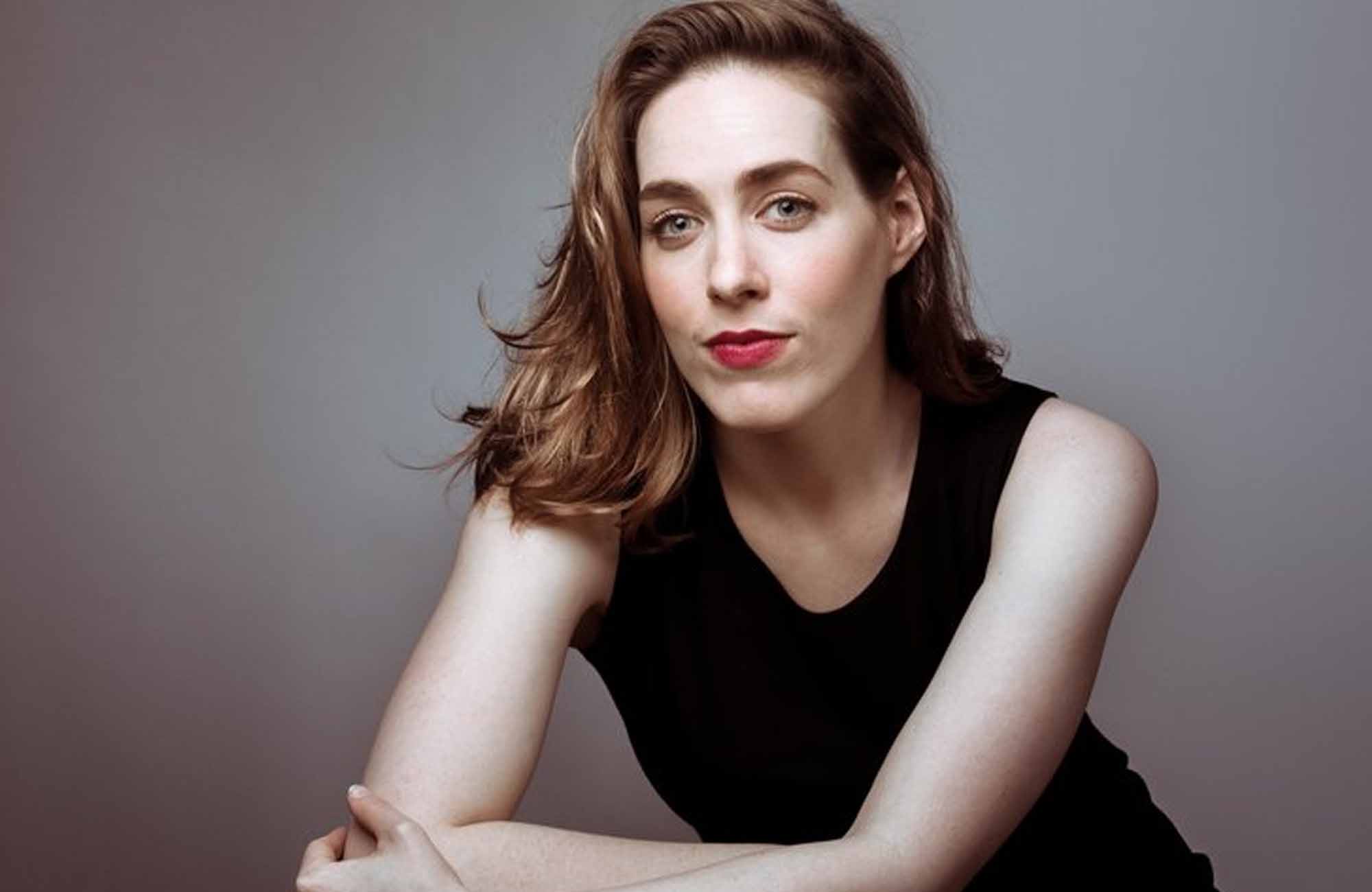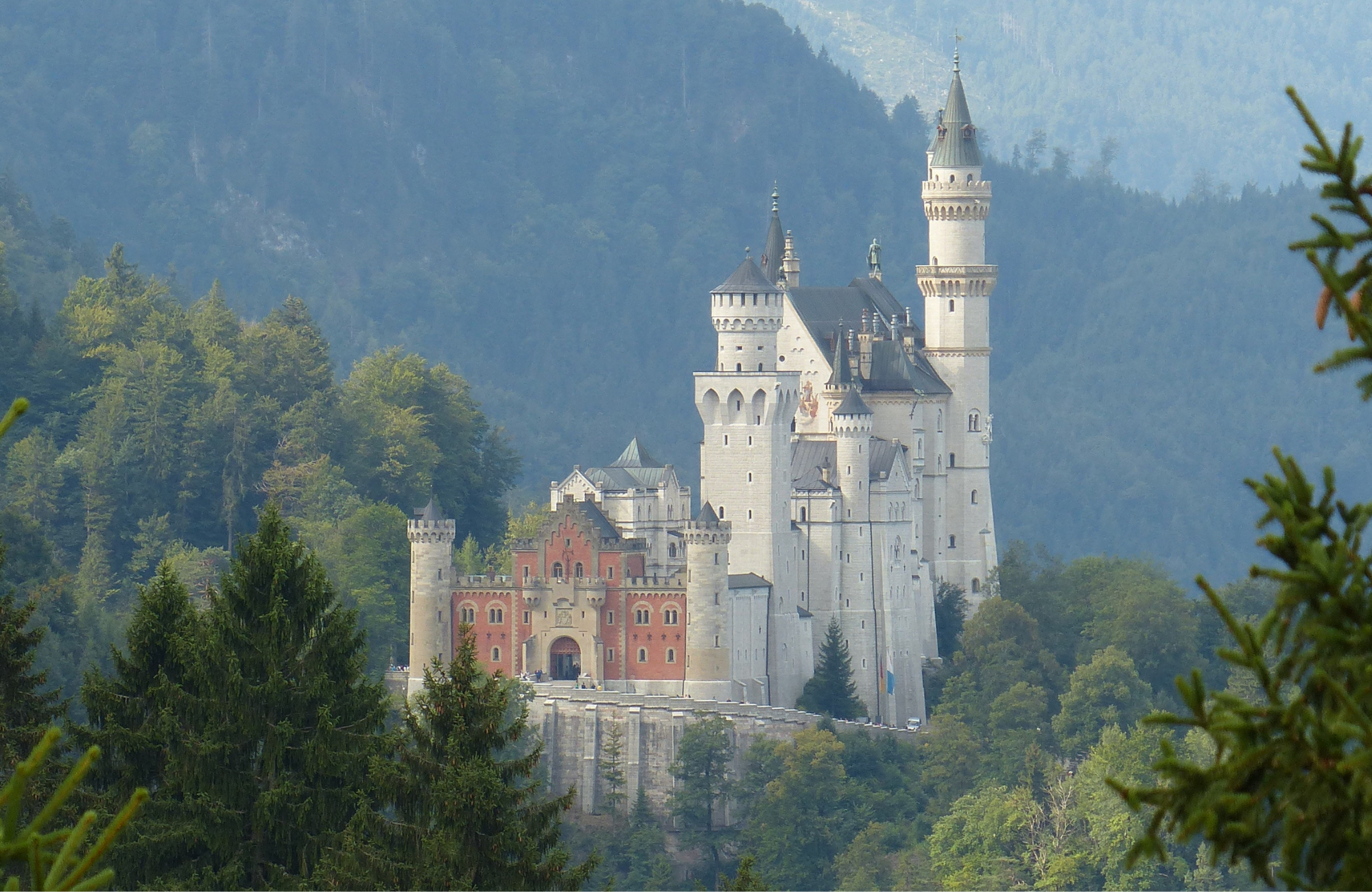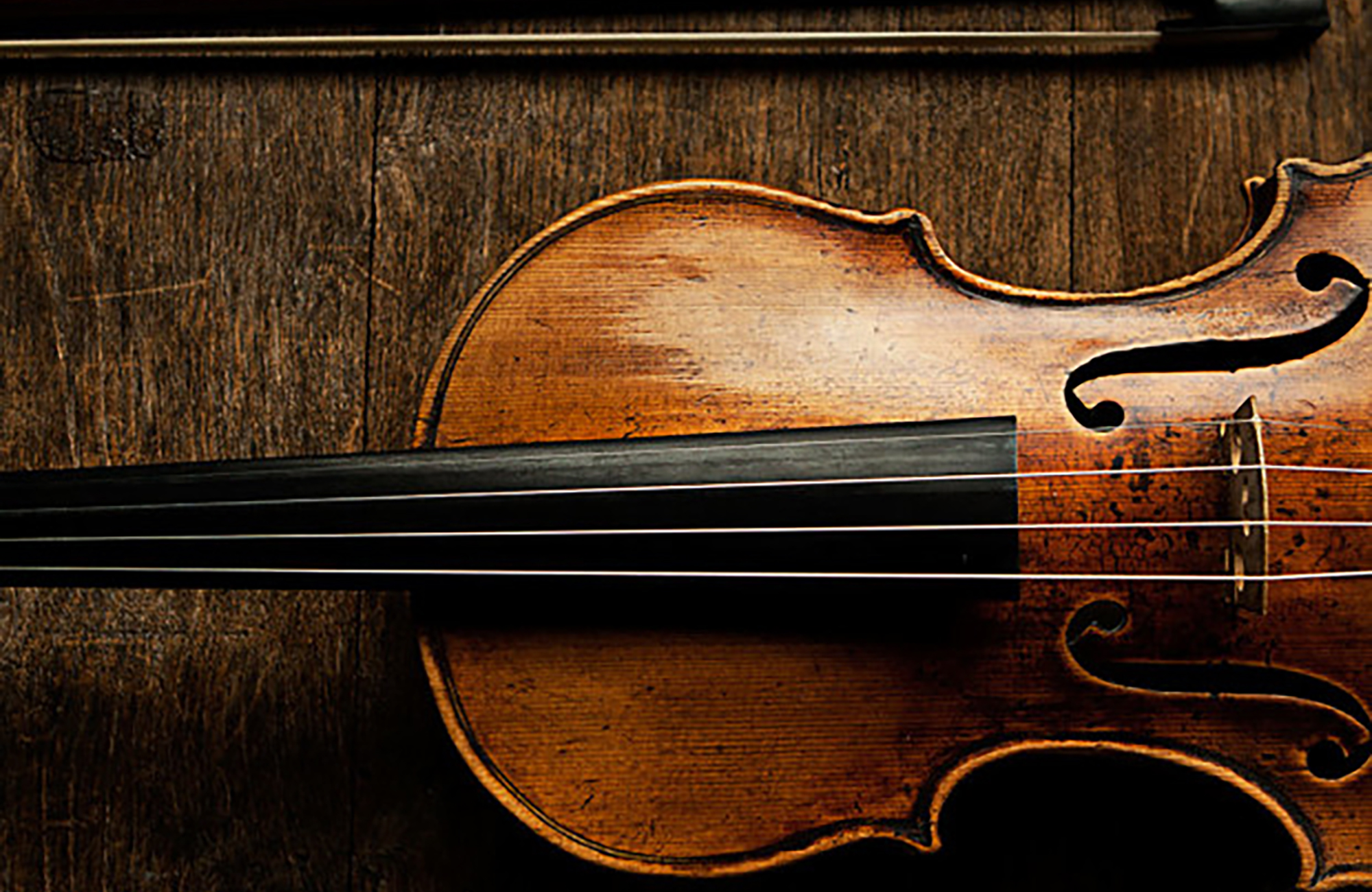PROGRAM
WEBER: Der Freischütz, J.277: Overture ![]()
VAUGHAN WILLIAMS: Fantasia on a Theme by Thomas Tallis ![]()
HANDEL: Royal Fireworks Music, HWV 351 ![]()
ROSSINI: L’Italiana in Algeri: Overture (original version) ![]()
BARBER: Knoxville: Summer of 1915, op.24 ![]()
BEETHOVEN: Egmont: Overture ![]()
;nbsp;
PROGRAM NOTES
Normally, Symphoria programs emerge from intense discussions by our Artistic Operations Committee, made up primarily of players and conductor Larry Loh. Starting with some grounding element—a piece, a composer, a theme, a period or style—we work to come up with a coherent program that shows it off to the best advantage. This afternoon’s concert, brainchild of piccolo player Kelly Covert, has a different origin: we asked all the players in the orchestra to nominate the pieces they’d most like to play. After sifting through the dozens of recommendations (no easy matter), we ended up with ...
Normally, Symphoria programs emerge from intense discussions by our Artistic Operations Committee, made up primarily of players and conductor Larry Loh. Starting with some grounding element—a piece, a composer, a theme, a period or style—we work to come up with a coherent program that shows it off to the best advantage. This afternoon’s concert, brainchild of piccolo player Kelly Covert, has a different origin: we asked all the players in the orchestra to nominate the pieces they’d most like to play. After sifting through the dozens of recommendations (no easy matter), we ended up with an eclectic mix of six chestnuts from four countries stretching over three centuries. What do they have in common? Each is on the program because at least one of our musicians felt strongly that he or she wanted to share it with you.
We open with the overture to the supernatural melodrama Der Freischütz (1821) by Carl Maria von Weber (1786–1826). It’s one of the most familiar overtures in the standard repertoire. Still, says principal clarinet Allan Kolsky, orchestral programming “can be like the lottery. We haven’t performed this piece in Syracuse in the 17 years I’ve been here.” Weber was especially fond of the clarinet, and when, about five minutes in, you hear “that wonderful, trumpet-like fortissimo melting into Weber’s lyrical, operatic melody,” you’ll understand why Allan would be “really looking forward to this performance.”
The 1910 Fantasia on a Theme by Thomas Tallis, by far the most popular work of Ralph Vaughan Williams (1872–1958), could hardly be more different. It’s scored for strings where the Weber is scored for full orchestra; it’s meditative where the Weber is dynamic; and most important, it looks backwards where the Weber looks ahead. Weber was one of the more progressive voices in the transition between classicism and romanticism; Vaughan William, part of a group of British composers trying to break free from the German romanticism that Weber had helped inaugurate, took his inspiration from British folk-song and, in this work, Renaissance English music. Violist Dana Huyge chose the Fantasia for a number of reasons. Partly it’s the magnificence of the work itself: “It is such a beautiful work, in its inventiveness, in the ways that the harmonies are fleshed out, in the way that it echoes back through history.” But he also loves the “intimacy of playing with just strings.” This work is especially rich in opportunities, since there are three different string groups—the main orchestra, an antiphonally placed second orchestra, and a string quartet. As a result, “you have three different modes of expression.”
We close our first half with Music for the Royal Fireworks by George Frideric Handel (1685–1759), composed in 1749 for a fireworks display to celebrate the Treaty of Aix-la –Chappelle that ended to the War of Austrian Succession. Handel was revered in England at the time—an open rehearsal for this piece reportedly drew well over 10,000 people. The premiere itself was a spectacular event, partly because of the huge assemblage of instruments (including nine trumpets, nine horns, and twenty-four oboes), partly because the fireworks set fire to part of the grandstand. For obvious reasons, we’re forgoing the fireworks. As for the original musical forces: we couldn’t afford to duplicate them, nor could your ears survive the racket that this outdoor music would create in such an intimate setting. But even in one of the more modest editions normally heard these days, the music is certainly thrilling. Trumpeter Roy Smith has chosen it not so much because it features the brass, but because of “the unique way it showcases whatever group is playing it.” Much more than most works in the standard repertoire, where “the score is what it is,” every performance of Fireworks is “unrepeatable.” Not only are there are different editions, but “there also very open-ended instructions about who should play what, what repeats you’re going to take, how you’re going interpret the French style of the overture. There are some improvised cadenzas and there’s room for ornamenting on the repeats. Whenever you hear that piece, it’s a unique experience.” To put it differently, this will be a “Symphoria” Fireworks—and the way Handel plays groups of instrumentalists off against each other allows the orchestra “to show off its stuff.”
A very different kind of orchestral showpiece opens the second half: the delightful overture to L’Italiana in Algeri, written in 1813 by Gioachino Rossini (1792–1868). It was chosen by conductor Larry Loh who, as a youngster, was especially taken with it because of the “unexpected phrasing” and the “weird pauses” in the introduction. Beyond that, as a woodwind player himself, he loves all the wind solos—and as a conductor, he loves “the kind of detail and articulation that you have to get across the board from everyone.”
Since its founding, Symphoria has had a close connection to the music of Samuel Barber (1910–1981)—so it’s perhaps no surprise that violinist Susan Jacobs chose to include his Knoxville: Summer of 1915, composed in 1947. Like the Vaughan Williams, it’s a low-key piece, although different in mood. Drawing on a brief poem by James Agee (later incorporated into A Death in the Family), it presents a double vision: the innocence of a young child soaking in the sights and sounds of a quiet summer evening, tinted with the melancholy nostalgia of an older man looking back on a time that will not return. The work is an almost perfect marriage of music and text. This afternoon’s soloist, Meredith Lustig, is “captivated” by the words, which “capture the perfect feeling of being so happy” combined with the “sadness that comes with it being so transient.” And the sweep of the orchestration—even though the ensemble is small—“gives a very child-like quality to the narrator. The orchestral world that Barber has created makes me, as a performer, feel that I’m just a small part of this huge world.”
As our concluding work, principal flutist Xue Su has chosen the rousing overture to Egmont by Ludwig van Beethoven (1770–1827). It launches his incidental music for a play by Goethe—a play that celebrates the heroic sacrifice of an individual for liberty. Xue sees a strong connection with Beethoven’s politically inspired Eroica Symphony, and she especially loves the music’s narrative (which “compresses the whole action of the play into one single musical work”) and its special combination of the “heroic and the dolce.” This vigorous end to the concert is also a beginning: 2020 is the 250th anniversary of Beethoven’s birth, and this is the first of a half dozen concerts, this season and next, that will celebrate that event.
Peter J. Rabinowitz
Have any comments or questions? Please write to me at prabinowitz@ExperienceSymphoria.org
FEATURED ARTISTS
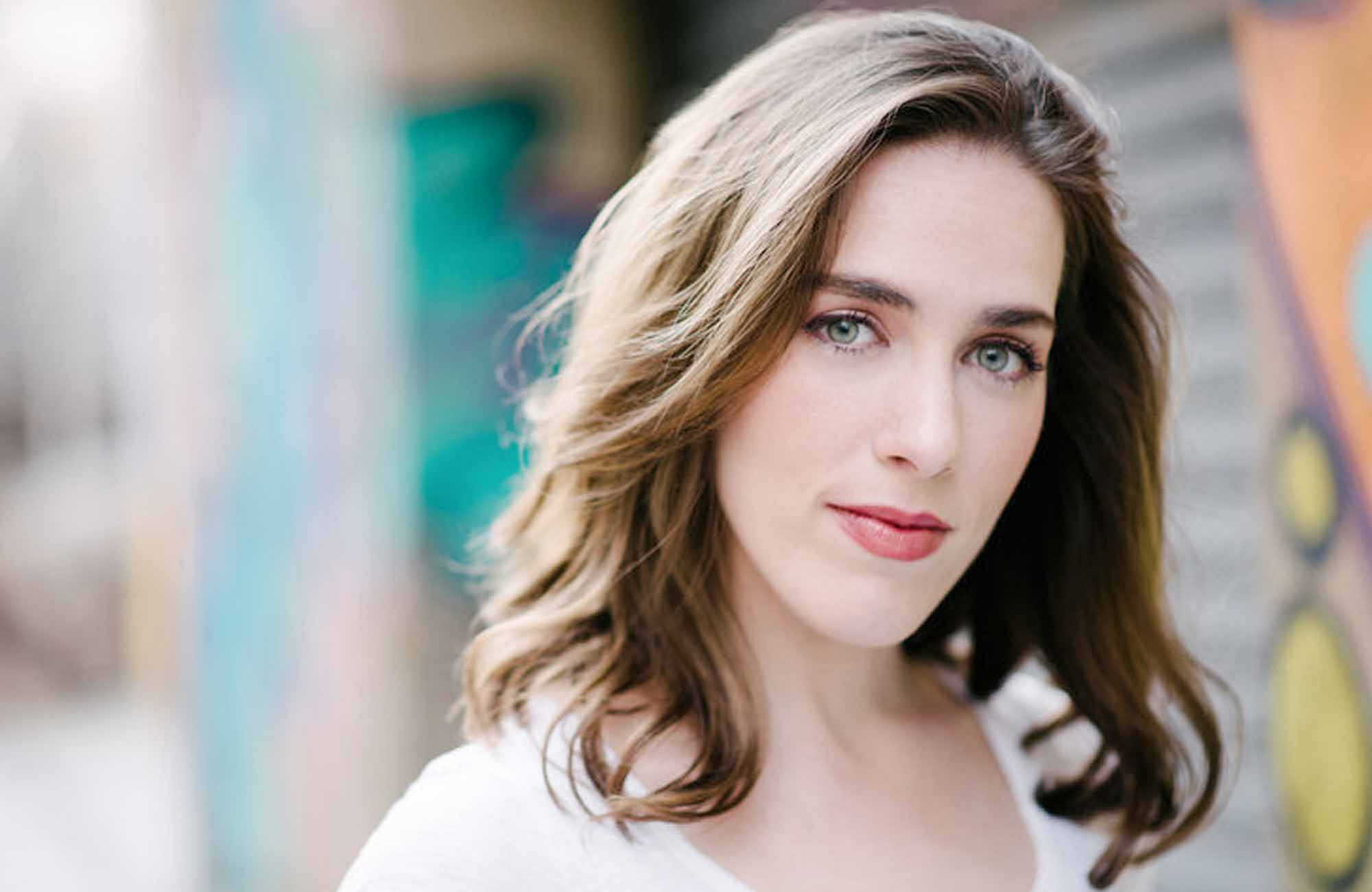
Praised for her “radiant soprano” and “outstanding dramatic presence,” Meredith Lustig has established herself as an artist of great versatility and sophistication. Her passion for music and love of storytelling has led to a diverse and eclectic career of opera, musicals, television, cabaret, recital, and symphonic appearances. She cherishes ...
Praised for her “radiant soprano” and “outstanding dramatic presence,” Meredith Lustig has established herself as an artist of great versatility and sophistication. Her passion for music and love of storytelling has led to a diverse and eclectic career of opera, musicals, television, cabaret, recital, and symphonic appearances. She cherishes the opportunity to champion new works, approaches a classic with fresh eyes and a respectful heart, and prizes a thoughtful collaborative process above all else.
Meredith made her professional debut in 2011 with New York City Opera playing the role of Giannetta in L’Elisir D’Amore. Additionally for the company, she sang the role of Cephisia in Telemann’s Orpheus (directed by Rebecca Taichman), covered the role of Max in Oliver Knussen’s Where the Wild Things Are, and participated in the VOX Festival of new opera singing Paola Prestini’s Dedeo.
Ms. Lustig is a former Resident Artist with Pittsburgh Opera. During her two seasons with the company she performed the roles of Papagena in The Magic Flute, Zina in Dark Sisters, Musetta in La Boheme, Carolina in Il Matrimonio Segreto, and Clorinda in Cenerentola. She continued her training with multiple summers spent as a young artist at The Glimmerglass Festival, The Aspen Music Festival, Songfest, The Ravinia Steans Institute, and the Bel Canto Institute in Florence, Italy.
Since then, favorite collaborations have included Bernstein’s Candide and Mass with the Philadelphia Orchestra under the baton of Yannick Nézet-Séguin, touring her one woman show To Sondheim, With Love with music director Jillian Zack, singing the role of Blanche Dubois in Andre Previn’s A Street Car Named Desire with maestro Michael Sakir for Opera Company Middlebury, originating the role of Megan in Robert Paterson’s The Whole Truth with the American Modern Ensemble, Claudine in Gluck’s L’Arbre Enchante with maestro Ryan McAdams for Hogfish, Eurydice in Offenbach’s Orphee Aux Enfers with conductor Ann Manson for Virginia Opera, Kate/Lilli in Cole Porter’s Kiss Me Kate and Laurey in Rodgers and Hammerstein’s Oklahoma at the Mac Haydn Theater, becoming a cold open call for The Tonight Show with Steven Colbert, filming Bernstein’s Mass for PBS Great Performances with conductor Marin Alsop, premiering songs by Adam Guettel and Paul Moravc with Steven Blier and Michael Barrett for the New York Festival of Song, performing Barber’s Knoxville: Summer 1915 with Symphoria, pops concerts with the Dallas Symphony, Detroit Symphony, Hong Kong Opera, Caramoor Music Festival, and Canada’s Centre National Des Arts, and appearing in recitals and co-teaching masterclasses for the Virginia Arts Festival with pianist and music director Rob Fisher.
Meredith holds both a Bachelor and Master Degree from the Juilliard School where she studied under the tutelage of Edith Bers. She is a 2012 District winner and 2013 third place Regional winner of the Metropolitan Opera National Council Auditions, a 2015 semi-finalist in the American Traditions Competition, a 2010 Town Hall Theater Broadway Rising Star, and the first recipient of the Juilliard Novick Career Grant. Ms. Lustig is a New Hampshire native and a proud graduate of the Walnut Hill School for the Arts and the Handel and Haydn Apprenticeship program.
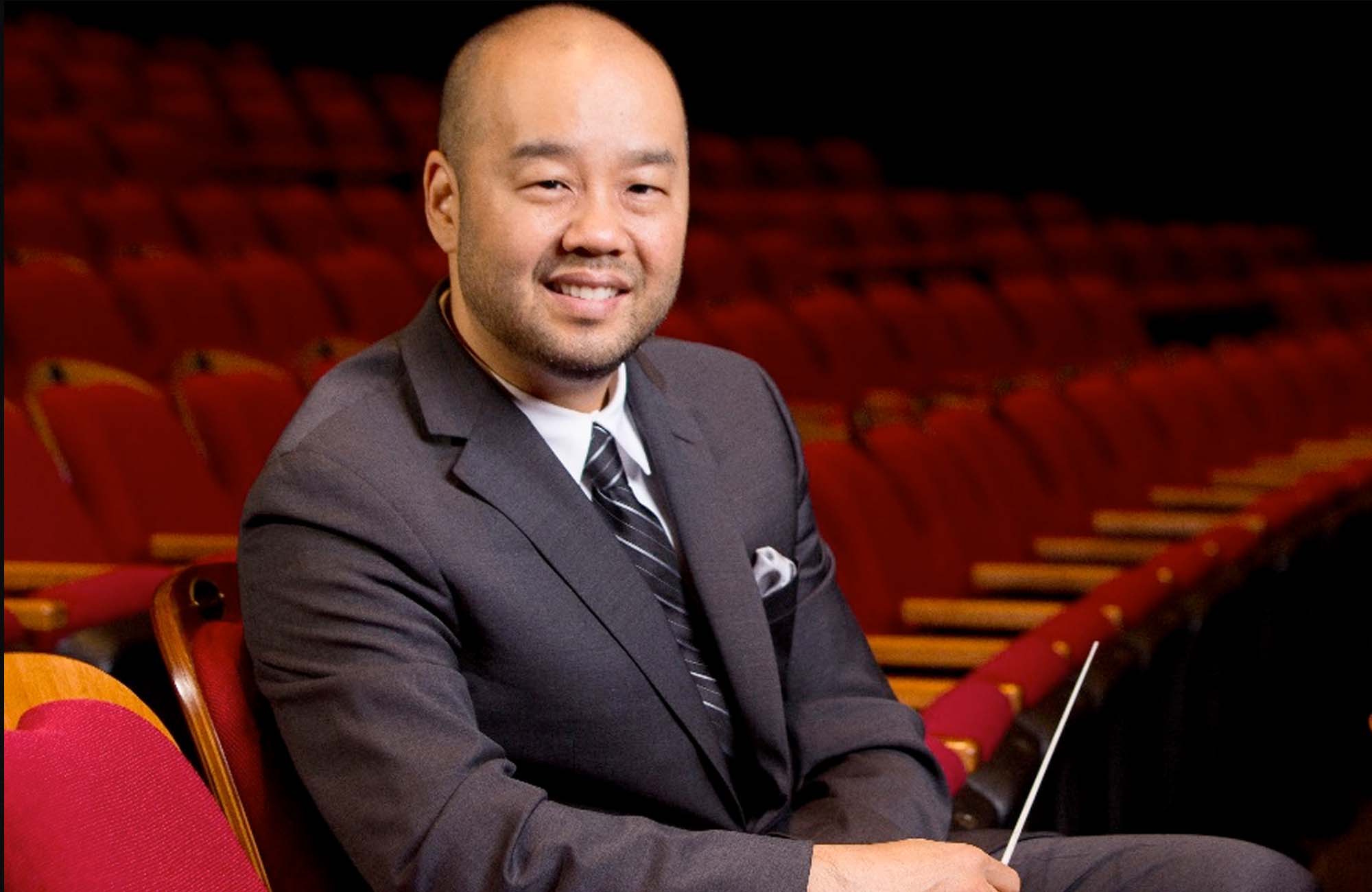
Described as bringing an “artisan storyteller’s sensitivity… shaping passages with clarity and power via beautifully sculpted dynamics… revealing orchestral character not seen or heard before” (Arts Knoxville) Lawrence Loh enjoys a dynamic career as a conductor of orchestras all over the world.
After an extensive two ...
Described as bringing an “artisan storyteller’s sensitivity… shaping passages with clarity and power via beautifully sculpted dynamics… revealing orchestral character not seen or heard before” (Arts Knoxville) Lawrence Loh enjoys a dynamic career as a conductor of orchestras all over the world.
After an extensive two year search, Lawrence Loh was recently named Music Director of the Waco Symphony Orchestra beginning in the Spring of 2024. Since 2015, he has served as Music Director of The Syracuse Orchestra (formerly called Symphoria), the successor to the Syracuse Symphony Orchestra. “The connection between the organization and its audience is one of the qualities that’s come to define Syracuse’s symphony as it wraps up its 10th season, a milestone that might have seemed impossible at the beginning,” (Syracuse.com) The Syracuse Orchestra and Lawrence Loh show that it is possible to create a “new, more sustainable artistic institution from the ground up.”
Appointed Assistant Conductor of the Pittsburgh Symphony in 2005, Mr Loh was quickly promoted to Associate and Resident Conductor within the first three years of working with the PSO. Always a favorite among Pittsburgh audiences, Loh returns frequently to his adopted city to conduct the PSO in a variety of concerts. Mr. Loh previously served as Music Director of the West Virginia Symphony Orchestra, Music Director of the Northeastern Pennsylvania Philharmonic, Artistic Director and Principal Conductor of the Syracuse Opera, Music Director of the Pittsburgh Youth Symphony Orchestra, Associate Conductor of the Dallas Symphony Orchestra, Associate Conductor of the Colorado Symphony Orchestra and Music Director of the Denver Young Artists Orchestra.
Mr. Loh’s recent guest conducting engagements include the San Francisco Symphony, Dallas Symphony, North Carolina Symphony, Baltimore Symphony, Sarasota Orchestra, Florida Orchestra, Pensacola Symphony, Atlanta Symphony, National Symphony, Detroit Symphony, San Diego Symphony, Seattle Symphony, National Symphony (D.C.), Utah Symphony, Rochester Philharmonic, Indianapolis Symphony, Calgary Philharmonic, Buffalo Philharmonic, Albany Symphony and the Cathedral Choral Society at the Washington National Cathedral. His summer appearances include the festivals of Grant Park, Boston University Tanglewood Institute, Tanglewood with the Boston Pops, Chautauqua, Sun Valley, Shippensburg, Bravo Vail Valley, the Kinhaven Music School and the Performing Arts Institute (PA).
As a self-described “Star Wars geek” and film music enthusiast, Loh has conducted numerous sold-out John Williams and film music tribute concerts. Part of his appeal is his ability to serve as both host and conductor. “It is his enthusiasm for Williams’ music and the films for which it was written that is Loh’s great strength in this program. A fan’s enthusiasm drives his performances in broad strokes and details and fills his speaking to the audience with irresistible appeal. He used no cue cards. One felt he could speak at filibuster length on Williams’ music.” (Pittsburgh Tribune)
Mr Loh has assisted John Williams on multiple occasions and has worked with a wide range of pops artists from Chris Botti and Ann Hampton Callaway to Jason Alexander and Idina Menzel. As one of the most requested conductors for conducting Films in Concert, Loh has led Black Panther, Star Wars (Episodes 4-6), Jaws, Nightmare Before Christmas, Jurassic Park, Casablanca, The Wizard of Oz and Singin’ in the Rain, among other film productions.
Lawrence Loh received his Artist Diploma in Orchestral Conducting from Yale, his Masters in Choral Conducting from Indiana University and his Bachelor of Arts from the University of Rochester. Lawrence Loh was born in southern California of Korean parentage and raised in Carlisle, Pennsylvania. He and his wife Jennifer have a son, Charlie, and a daughter, Hilary. Follow him on instagram @conductorlarryloh or Facebook at @lawrencelohconductor or visit his website, www.lawrenceloh.com


